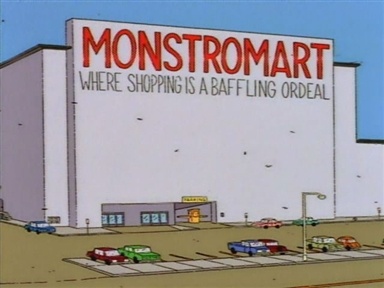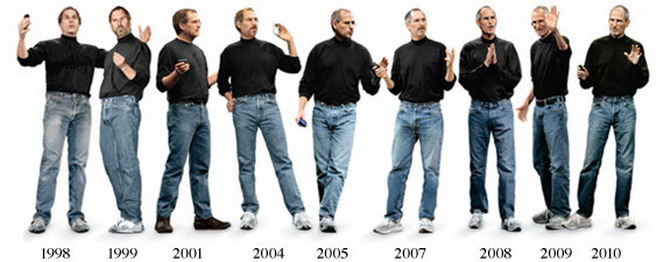Decision Fatigue: Why Too Much Choice Is Bad For You

Cast your mind back to 2020* and the first pandemic lockdown . . .
Like many people across the country, you might well have more time on your hands than ever before and, coincidentally, a larger choice of TV programmes to watch. This has led to a fair amount of decision-making about what to watch next.
If you're like me then some of that time is being spent curled up on the sofa watching dramas.
- I'm loving Better Call Saul
- I'm pretending Disney's The Mandalorian is better than it is, although Baby Yoda is pretty cool
- And with no definite end date for the lockdown I've plunged into Spooks. Never seen it before!
More Choices?
This week we started watching The Nest. It's a pretty good decision. The main takeaway has been getting my head round Martin Compston's Scottish accent. I had no idea that he actually is Scottish and his London accent in Line Of Duty is the fake one. Mind blown!
Another takeaway was in reaction to a line in episode two. Don't worry, it's not a plot spoiler.
Compston's character is a successful businessman, a local Glasgow boy made good. At the launch of a new housing project he addresses the audience asking:
"What does anyone want?"
His answer seems logical:
"More than what their parents had. More choices. More opportunities."
More choice and more opportunities might appear to be natural things to aspire to but often they have a counterintuitive effect. In social psychology this is known as the Paradox Of Choice where the requirement to make more and more decisions and the right choice can be a pressure that takes a toll.
The paradox of choice suggests that more options might seem better as they appear to enhance satisfaction through variety, but in reality, an excess of choices, (and they don't even have to be important choices), can actually make decision-making harder. Even if you've made the right choice, the effects of decision fatigue often lead to dissatisfaction with the final selection.
Choice Overload
Normally, a sunny weekend brings with it a number of questions for our household.
We're free this weekend with no commitments. How shall we spend this sunny Saturday? At home or out? For a walk or bike ride?
It's usually easy to make decisions. Most of these questions are quickly answered and with minimum fuss but the key point is that you are actually making many decisions. You don't even realise you're asking them, but you are making so many decisions each day. With choice overload started the decision-making process continues . . .
Where shall we go? Seaside? Countryside? In the woods or up on a hill? How far shall we drive to get there? Make a packed lunch or grab a bite out?
Which then leads on to smaller questions and choices about how much time, money and effort we're willing to spend on our sunny Saturday.
This weekend is very different however. The clear instruction is to stay at home. So all of those choices are unavailable. None of those questions will be asked and my ability to make decisions is restricted.
That severely limits my choices. But in turn it narrows my focus. Which in turn means my energy is pointed in fewer directions. I don't have to spend so much energy over a number of choices. My attention is less diluted and I can get more done. This can be a really good thing.
Even if this particular weekend the enforced lack of choice is not a freeing experience for you, it's still worth considering where in your life, having too much choice can be a limiting factor.
Big Decisions
There's a great Simpsons episode where Marge goes shopping at the Monstromart, an enormous supermarket with a "great selection and rock-bottom prices".
Monstromart's motto is: Where Shopping Is A Baffling Ordeal.

That sums up The Paradox Of Choice perfectly.
It's not just in Springfield where the effects of choice overload can be wearing. Every high street cafe in the UK presents a challenge these days and has the ability to make you feel overwhelmed.
Once upon a time a shopper could put down their bags, ask for a coffee and be served a coffee. Now that's not an option - you have to choose your type of coffee from the 24 flavours available. Okay I might be exaggerating but if there used to be just one or two choices we're now into double figures. As soon as you step in the building you're presented with choices you need to make.
There are lot of choices and you need to know what you want. Asking for a generic coffee doesn't cut it any more.
Sapping Willpower
The number of choices available is bewildering. There's a myriad of options. The coffee chart at the top of this post is only the beginning of your caffeine obstacle course and that's before we get to the available milks. Full fat, semi-skimmed and skimmed. Almond, oat, rice, soy. It goes on forever. The final choice and that satisfying slurp is always a few more stops away.
What used to be an easy decision can now deplete your mental reserves and drain your willpower. You might not even be aware of the fatigue you develop but when you have to make a lot of decisions you may experience mental overload that can impede ability to make good decisions.
But choice is good right? Who wouldn't want an abundance of options?
It's easy to dismiss overchoice as nothing important but the accumulation of making lots of choices has a debilitating effect. Too much choice is demotivating.
Too many choices can be restrictive. Too many options can distract and prevent you from focusing effectively. Too many choices can slow you down and limit your progress.
Decision Fatigue
Here's the thing; it takes the same amount of energy to make a big decision as it does to make a small one. And the ability to continue making decisions - good ones at least - reduces over time. Psychologists refer to this phenomenon as Decision Fatigue.
This is the deteriorating quality of decisions made by an individual after a long session of decision making. Researchers found that making a decision uses energy and if you have too many choices it can be mentally exhausting. Decision fatigue can then kick in and your start to make bad choices.
It might have happened to you when you visited the supermarket after a long day at work making too many decisions. You end up with a reduced decision making ability. And that might explain why you've got stuff like powdered wasabi and yeast flakes at the back of your store cupboard. Stuff you'll never use but obviously thought was a good idea at the time. Bad decision!
Or why you just gave in at the checkout and bought that bar of chocolate even though you're on a diet. Another bad decision! Poor decision making rarely happens in the morning when you're fresh, but the more decisions you make each day the more pronounced mental fatigue becomes.
Where Can You Simplify?
That's why some people take this burden of choice very seriously and attempt to remove small decisions from their life. They are actively trying to avoid Decision Fatigue.
My favourite example of this is Steve Jobs and his simplified wardrobe.

Sticking to a standard uniform of black top, blue jeans and New Balance sneakers meant that from 1998 onwards he never had to think about what he was going to wear. Having fewer options meant he did not have to make choices. Not one single clothing decision to make. Instead he could save his mental energy for the important decisions he had to make.
Barack Obama and Mark Zuckerberg take the same predictable clothing options too, precisely to reduce the number of decisions they need to make each day. They overcome decision fatigue, by restricting their number of options.
It's important to reduce or avoid decision fatigue because it can impede a person's ability to make a good choice. It's not just trivial stuff like coffee either. Decision fatigue can significantly impact professions like in the courts or in hospitals, where critical decisions need to be made frequently under pressure. This form of cognitive drain results from the mental burden of constant decision-making, which can degrade the quality of decisions over time.
Important Decision-Making
For judges, who will need to make an important ruling, decision fatigue can lead to rushed or less thought-through rulings especially after long sessions. The quality and thoroughness of judicial decisions might decline as the day progresses, potentially leading to disproportionate rulings or oversight of critical case details.
Doctors face a similar challenge, faced with a multitude of decisions, where decision fatigue can result in errors, oversights, or less optimal patient care. After numerous patient evaluations, a doctor might prescribe treatments or make medical decisions that are not as well-considered as those made earlier in the day. This can affect patient outcomes and increase the likelihood of medical errors.
So if you find yourself in court or scheduled for an operation try and schedule it early in the day before the judge or doctor is tired of making decisions and won't be suffering from mental exhaustion.
Simplify Your Life
With the measures that were put in place to reduce the impact of coronavirus we all had our choices reduced in a number of areas. One useful way of accepting this and dealing with it was to ask yourself "How can this benefit me?"
Making good decisions can significantly enhance one's quality of life. If you find that there is a positive to be gained from reduced choices then the next question is "Where else would I benefit from reduced choices?"
So how can you reduce the number of daily choices, simplify your life and avoid experiencing decision fatigue? Reducing choices could be the best decision altogether.
You might not feel that this is easily possible so here's an example. One area of life you could reduce the multitude of choices is around food. It could be something as simple as writing out a meal plan for the week.
Then during the following days your food choices will be fewer. With your choices made already, you know in advance what you're going to make for dinner. You don't have to decide on as much and the state of mental overload is reduced.
So I'd suggest that the big decision you have to make is to actually get rid of a lot of options. Good luck with finding your own way to overcome decision fatigue!
*This post was first written during the UK's first lockdown in 2020
Stay connected with news and updates!
Join Iain's mailing list to receive the latest Top Tips every Friday. As a subscriber you'll always be the first to read it, BEFORE it makes it to the blog. Plus you'll get the latest news and offers.
Iain hates SPAM. He will never sell your information, for any reason.
